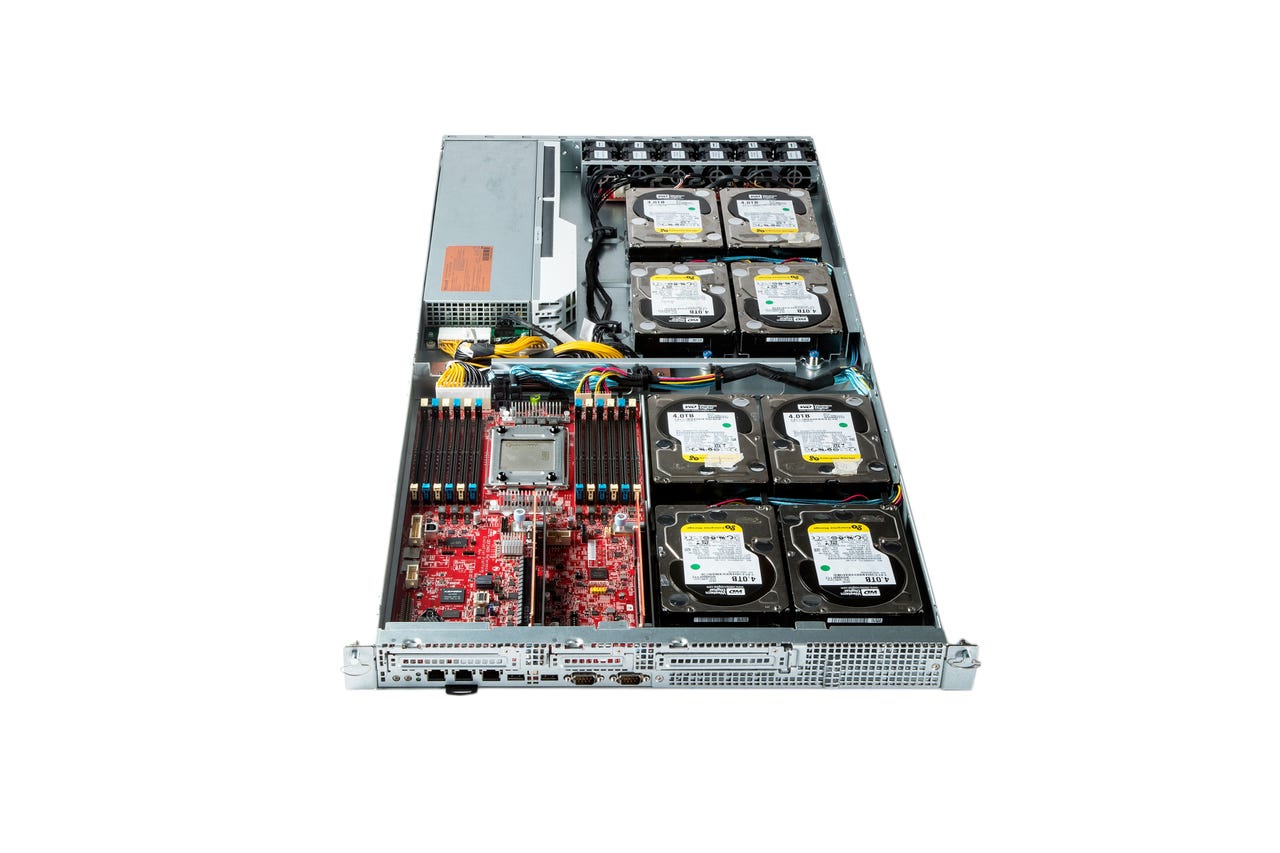Qualcomm, Microsoft team up on Windows Server on ARM servers, submit spec to Open Compute Project


Microsoft and Qualcomm demonstrated Windows Server on an ARM-based system on Qualcomm's 10nm Centriq 2400 processor node. The two parties are submitting a specification to the Open Compute Project.
The software giant had been rumored to be kicking around a Windows Server entry for the ARM platform, but the feasibility was unclear given Microsoft's long partnership with Intel in the data center.
Qualcomm and other players in the ARM space have pondered the server market for years. ARM hasn't gained much traction, but companies like Nvidia have broken into high-end computing markets with its graphics processors.
Also: Windows Server on ARM: It's happening | ARM's new chip design targets high-performance computing
According to Qualcomm, the specification to the OCP--dubbed the Qualcomm Centriq 2400 Open Compute Motherboard--is compliant with Microsoft's Project Olympus, which is a Open Compute spec on how vendors should design for Microsoft cloud infrastructure. Qualcomm and Microsoft said their collaboration is multi-year and multi-faceted and "span multiple future generations of hardware, software and systems."
Mary Jo Foley reported in October that Microsoft was working on its second version of its Project Olympus server designs. The addition of Qualcomm in the mix adds another wrinkle.
Should Qualcomm's Centriq 2400 server tools, which were launched in December, be adopted for workloads in Microsoft's Azure cloud it would be a big win for ARM in data centers. For Microsoft, ARM-based servers could save the company money on infrastructure via power. Qualcomm said it has been working with Microsoft for several years on ARM-based servers and optimizing Windows Server on its processors. Qualcomm said its Centriq 2400 processor is sampling now with commercial availability in the second half of 2017.
Microsoft and Qualcomm said the OCP demo highlights how ARM servers can be used for big data and memory intensive workloads.
Among the key points:
- The Qualcomm Centriq Open Compute Motherboard pairs the a 10nm, 48-core server processor with interfaces for memory, network and peripherals.
- The OCP spec fits into a standard 1U server systems.
- Qualcomm said its OCP spec can pair with accelerators and leading edge storage technology.
- At OCP, the demo highlighted how the Centriq can work for Bing workloads.
In addition, Qualcomm said it has joined OCP as a gold member. Qualcomm added that it continues to work with Red Hat, Canonical, Mellanox, Xilinx and AMI.